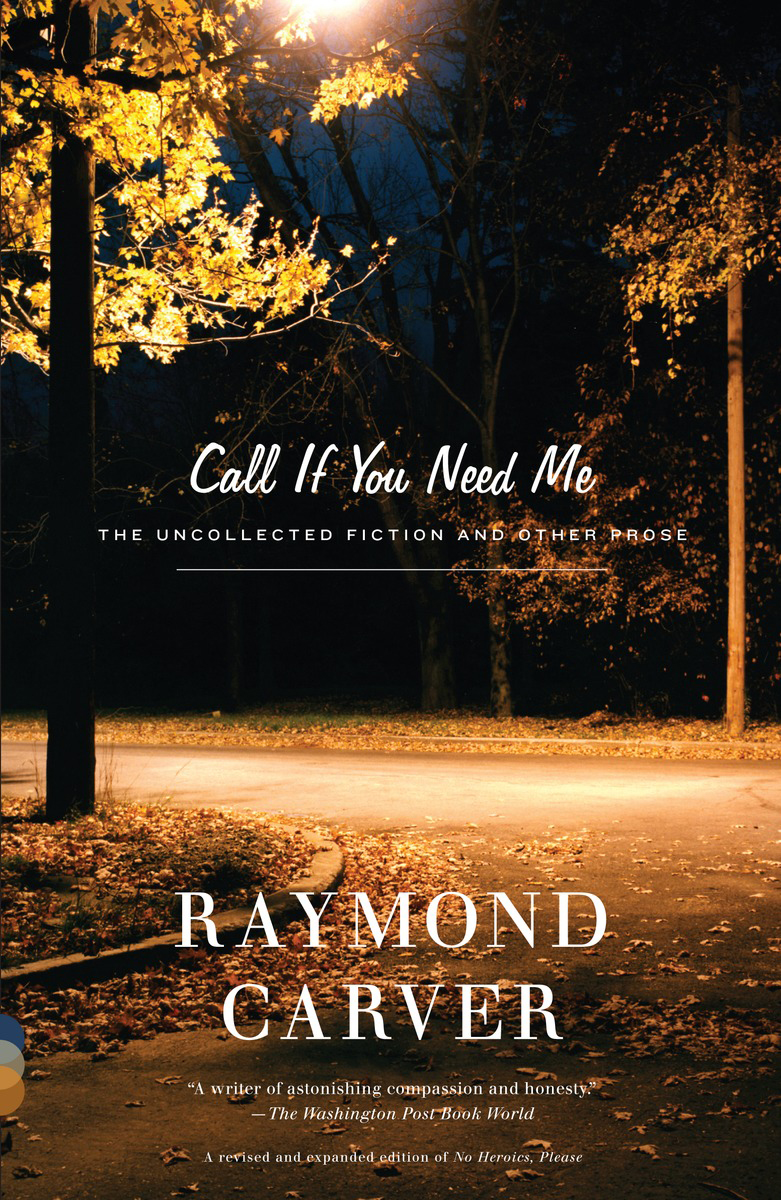
Call If You Need Me
The Uncollected Fiction and Other Prose
کتاب های مرتبط
- اطلاعات
- نقد و بررسی
- دیدگاه کاربران
نقد و بررسی

January 8, 2001
For fans of Carver, who died in 1988, the five newly discovered stories collected here are like a stash of diamonds stumbled upon in a long-abandoned mine. The writer's style is, as always, spare and succinct, demonstrating Carver's ability to see deep into the human heart and expose human frailty in a way that leads readers to understand things they have known all along but never before identified. The title story deals with the dissolution of a marriage, a subject Carver practically had a patent on. A couple, both engaged in affairs, decide to spend a quiet summer together in an attempt to mend their marriage. "Kindling" concerns a recovering alcoholic who tries to exorcise his demons by chopping a pile of logs into kindling. Possibly the strongest narrative is "What Would You Like to See?" in which a couple who have been bad tenants in the past try to redeem themselves by leaving their rental in spotless condition. Rewarded with a good-bye dinner, they congratulate themselves on their cordial relationship with their landlords, only to be snubbed the next morning when an unfortunate incident changes the tenor of their leave-taking. Carver's many fans will initially be attracted to this collection by the new stories, but they won't be disappointed by the remainder of the book, which includes five early stories, a fragment from a novel and assorted nonfiction pieces--book reviews, essays and brief meditations--the most interesting of which focus on Carver's theories of fiction writing.

December 20, 2000
The five previously uncollected stories that begin this volume are described as Carver's "last of the last" to be published. They follow his established form of finding meaningful and resonant moments in the quiet of everyday situations (four of the five deal in some way with couples separating) while telling them in a simple, unaffected, but compassionate manner. These stories comprise the "new" material in this revised edition of No Heroics, Please, previously published by Vintage in 1992. Included are Carver's earliest stories, book reviews penned by the author, biographical material, and pieces devoted to his writing process that provide some insight into the man and his work. If the opening stories don't quite scale the heights of "A Small, Good Thing" or "Cathedral," that may be beside the point; Carver fans will welcome this coda to the esteemed author's career, and libraries should consider updating, especially when considering the low price. Recommended for public and academic libraries.--Marc Kloszewski, Indiana Free Lib., PA
Copyright 2000 Library Journal, LLC Used with permission.

November 1, 2000
The late Raymond Carver unwittingly spearheaded the literary movement called minimalism, and even though that school of writing is rather passe these days, Carver will remain forever in the pantheon of important U.S. short story writers. His widow, writer Tess Gallagher, with the help of editor William L. Stull, has compiled what she calls the "last of the last": Carver's uncollected stories, including some never before published. To a one, they demonstrate the author's characteristic bare-bones style as he placed characters of modest means and resources into the kind of ordinary crises that define ordinary lives. Gathered here, too, but taking a back seat to the stories, are all the nonfiction pieces left uncollected at the time of Carver's death. These include essays, introductions, and book reviews; and in these, his trademark pared-down prose style worked as effectively as in his short stories. Also appearing here is a fragment of a novel, which, in only seven pages, can't be seen as anything close to a developed work.(Reprinted with permission of Booklist, copyright 2000, American Library Association.)

























دیدگاه کاربران